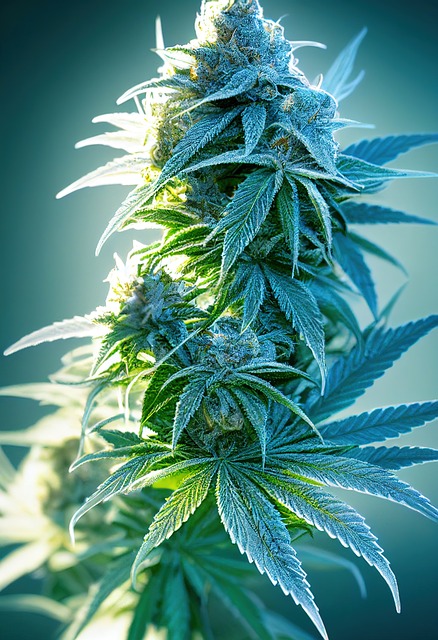thCA Flower for Pain Relief: A Comprehensive Analysis
Introduction
In the realm of alternative medicine, the search for effective and natural solutions for pain management has led many to explore the potential of thc (tetrahydrocannabinol) and CBD (cannabidiol) compounds derived from the cannabis plant. Among these, the thca flower—rich in tetrahydrocannabinolic acid (THCA)—has gained significant attention for its promising pain-relieving properties. This article delves into the multifaceted world of thca flowers, examining their role in providing relief from pain, the global impact of this natural remedy, and the various factors shaping its future. By exploring these aspects, we aim to offer a comprehensive understanding of why thca flower for pain relief is a topic of growing interest and importance worldwide.
Understanding thCA Flower for Pain Relief: Unlocking Nature’s Medicine
What is THCA?
THCA is a non-psychoactive cannabinoid naturally present in the cannabis plant (Cannabis sativa). Unlike its more well-known counterpart THC, THCA does not produce intoxicating effects when consumed. This compound is responsible for many of the therapeutic benefits associated with cannabis, including pain relief, anti-inflammatory properties, and muscle relaxation.
Pain Relief Mechanism:
THCA flower’s effectiveness in alleviating pain stems from its interaction with the endocannabinoid system (ECS) within the human body. The ECS is a complex biological system that plays a crucial role in maintaining homeostasis, including managing pain perception and inflammation. THCA mimics certain endocannabinoids produced by our bodies, binding to receptors in the ECS to modulate pain signals and reduce inflammation.
Historical Context:
The use of cannabis for medicinal purposes dates back centuries, with ancient civilizations recognizing its therapeutic benefits. However, modern research into specific compounds like THCA has accelerated in recent years, driven by advancements in analytical techniques and a growing acceptance of alternative treatments. This shift has led to increased interest in natural pain management options, positioning thca flower as a potential game-changer in the healthcare industry.
Global Impact and Trends: A World Embracing Natural Relief
The global landscape of thca flower for pain relief is dynamic and rapidly evolving, with varying trends across regions:
-
North America: The United States has been at the forefront of legalizing medical cannabis, driving significant research into specific cannabinoids like THCA. Many states have approved the use of cannabis-derived products for various conditions, including chronic pain. This has led to a thriving market for THCA-rich strains and extracts.
-
Europe: Several European countries have embraced medical cannabis, with Germany being a notable example. Here, thca flower is used in pharmaceutical forms for neuropathic pain and spasticity management in multiple sclerosis patients. The European Union’s regulatory framework provides a standardized approach to ensuring product safety and quality.
-
Asia: Countries like Israel and Japan are making significant strides in cannabis research. Israel, known for its medical cannabis program, has cultivated THCA-rich strains with high therapeutic potential. Japan, on the other hand, is focused on developing pharmaceutical-grade cannabis products, including those derived from THCA.
-
South America: Brazil and Uruguay have also legalized medical cannabis, fostering a growing market for THCA-based treatments. These countries are known for their diverse cannabis strains and innovative extraction methods.
Global trends indicate a rising demand for natural pain management solutions, with thca flower playing a pivotal role in this shift. The World Health Organization (WHO) has recognized the potential of cannabinoids in treating various conditions, further legitimizing research and clinical applications.
Economic Considerations: A Flourishing Market with Challenges
The economic implications of thca flower for pain relief are substantial, shaping industries worldwide:
| Market Dynamics | Impact |
|---|---|
| Global Cannabis Market Size: The global cannabis market is projected to reach USD 73.6 billion by 2027, growing at a CAGR of 24.5% (Grand View Research). | This rapid growth indicates a massive potential for thca flower products, from cultivation to distribution. |
| Regional Disparities: Legal frameworks and market regulations vary widely across regions, creating disparities in access and pricing. | Countries with favorable policies experience higher consumer adoption rates and a more diverse product range. |
| Investment Trends: The legal cannabis industry has attracted significant investments, including venture capital and private equity. | This influx supports research, cultivation, and production facilities, driving innovation and market expansion. |
Challenges:
- Regulatory Hurdles: The lack of uniform global regulations creates challenges for companies looking to expand internationally.
- Supply Chain Complexities: Ensuring a consistent supply of high-quality THCA products involves complex logistics and quality control measures.
- Price Fluctuations: Market volatility can impact the affordability of cannabis-derived treatments, affecting accessibility.
Technological Advancements: Driving Innovation in Pain Management
Technological breakthroughs have revolutionized the way thca flower is cultivated, extracted, and formulated for pain relief:
- Advanced Cultivation Techniques: Hydroponics, aeroponics, and LED lighting systems enable precise control over THCA production, ensuring high-quality yields.
- Extraction Methods: Sophisticated extraction processes, such as CO2 and ethanol extraction, isolate THCA with minimal degradation, resulting in pure compounds for pharmaceutical use.
- Nanotechnology: Researchers are exploring the potential of nanocarriers to enhance the bioavailability and efficacy of THCA, allowing for more effective pain management.
- Digital Health Solutions: Mobile apps and digital platforms provide patient monitoring, medication reminders, and access to healthcare professionals, improving the overall management of chronic pain.
Clinical Applications: Proving Its Efficacy in Pain Relief
Numerous studies have demonstrated thca flower’s effectiveness in various pain conditions:
- Chronic Pain: Several clinical trials have shown that THCA-rich cannabis can reduce chronic pain symptoms, including neuropathic and inflammatory pain. A study published in JCI (2015) reported significant improvements in chronic low back pain patients using medical cannabis.
- Multiple Sclerosis (MS): THCA products are used to manage MS-related spasticity and pain. Research suggests they can provide substantial relief, improving patients’ quality of life.
- Cancer-Related Pain: The National Institute on Drug Abuse (NIDA) has funded studies exploring cannabis’s role in managing cancer-related pain, particularly for patients experiencing severe side effects from traditional treatments.
- Post-Traumatic Stress Disorder (PTSD): Some veterans have reported reduced symptoms of PTSD and improved sleep quality using THCA-rich oils.
Legal and Regulatory Landscape: Navigating a Complex Web
The legal status of thca flower varies widely across countries and even within regions, making it a complex landscape to navigate:
- Medical vs. Recreational: Some countries allow the use of cannabis for medical purposes only, while others have legalized both medicinal and recreational use. This distinction significantly impacts access and product availability.
- Regulations and Licensing: Strict regulations govern the cultivation, processing, and distribution of cannabis products. Businesses must obtain licenses, adhere to quality standards, and comply with tax requirements.
- International Trade: The global trade in cannabis products faces challenges due to varying national laws, requiring careful navigation for international companies.
Challenges and Ethical Considerations: Ensuring Safety and Equity
While thca flower holds immense potential, there are challenges and ethical dilemmas that must be addressed:
- Patient Access: Despite growing acceptance, many patients face barriers to accessing cannabis-based treatments due to limited availability, high costs, or restrictive regulations.
- Dosage and Safety: Ensuring appropriate dosage and safety is crucial, especially for vulnerable populations. Standardization of products and clear labeling are essential to prevent misuse.
- Research Funding: Ongoing research is necessary to fully understand the range of therapeutic benefits and potential risks associated with THCA. Insufficient funding may hinder progress.
- Diversity and Equity: Efforts should be made to ensure that cannabis-based pain management options are accessible to diverse communities, addressing historical inequities in healthcare.
Future Prospects: A Bright Horizon for Natural Pain Relief
The future of thca flower for pain relief appears promising, with several key trends shaping its direction:
- Growing Scientific Evidence: As research continues, the body of scientific evidence supporting THCA’s therapeutic effects will expand, leading to increased acceptance within the medical community.
- Pharmaceutical Integration: The development of pharmaceutical-grade THCA products will bring them into the mainstream healthcare system, ensuring quality and consistency.
- Personalized Medicine: Advanced genetic testing and patient profiling can help tailor cannabis treatments to individual needs, optimizing pain relief while minimizing side effects.
- Global Collaboration: International collaboration in research and policy-making can lead to harmonized standards, improving access and safety worldwide.
Conclusion: Embracing Nature’s Gift for a Better Life
Thca flower represents a significant advancement in natural pain management, offering hope to millions worldwide suffering from chronic pain conditions. As the global community continues to explore this remarkable compound, we are on the cusp of a new era in healthcare—one that embraces nature’s medicine as a powerful tool for healing and improved quality of life. With ongoing research, technological innovations, and thoughtful regulation, thca flower has the potential to become a mainstream solution for pain relief, transforming lives and shaping the future of healthcare globally.









